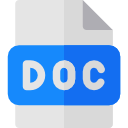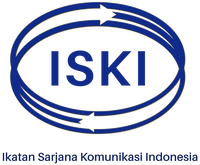Komunitas Daring Literasi Kesehatan Indonesia (LEKSIA) Sebagai Sarana Tular Nalar di Masa Pandemi COVID-19
DOI:
https://doi.org/10.31315/jik.v20i2.6338Keywords:
komunitas daring, leksia, literasi kesehatan, tsunami informasiAbstract
Revolusi industri 4.0 dan pandemi COVID-19 memaksa manusia untuk melakukan perubahan dan adaptasi kebiasaan baru. Tsunami informasi kesehatan mengakibatkan banyaknya informasi dan berita-berita hoaks yang tersebar di media sosial, sedangkan indeks literasi Indonesia masih jauh tertinggal. Penelitian ini bertujuan untuk menganalisis komunikasi efektif menggunakan media sosial Komunitas Daring Literasi Kesehatan Indonesia (Leksia) terhadap penyebaran informasi kesehatan di masyarakat. Metode penelitian menggunakan riset evaluasi dengan pendekatan audit komunikasi media sosial dan aplikasi pesan instan sebagai media tular nalar kepada warganet. Setiap harinya berbagai informasi dibagikan mulai dari hari senin sampai sabtu. Selain itu terdapat juga kegiatan pengabdian, penyuluhan dan perlombaan yang diadakan diluar dari kegiatan rutin. Rekrutmen relawan dilakukan untuk memberikan kesempatan bagi masyarakat dari berbagai profesi yang ingin menjadi bagian dari komunitas. Hasil penelitian adalah proses komunikasi komunitas Leksia melalui media sosial instagram dan whatsapp sudah sesuai dengan kaidah-kaidah komunikasi. Konten-konten yang sudah terjadwal setiap hari dan dispesifikasi dengan jelas sehingga tidak tercampur antara satu topik dengan topik yang lainnya. Monitoring dan evaluasi belum optimal. Kontribusi berupa rekomendasi kepada komunitas online diharapkan meningkatkan komunikasi dua arah untuk menarik kepercayaan publik dan melakukan monitoring dan evaluasi secara periodik terhadap konten-konten yang dibagikan agar tidak melanggar UU ITE.
References
Atanasova, S., Kamin, T., & Petrič, G. (2017). Exploring the benefits and challenges of health professionals’ participation in online health communities: Emergence of (dis)empowerment processes and outcomes. International Journal of Medical Informatics, 98, 13–21. https://doi.org/10.1016/j.ijmedinf.2016.11.005
Cahyono, A. S. (2016). Pengaruh Media Sosial terhadap Penyebaran Hoaks oleh Digital Native. Pengaruh Media Sosial Terhadap Perubahan Sosial Masyarakat Di Indonesia, 1(1), 140–157.
Chiu, C. M., Huang, H. Y., Cheng, H. L., & Sun, P. C. (2015). Understanding online community citizenship behaviors through social support and social identity. International Journal of Information Management, 35(4), 504–519. https://doi.org/10.1016/j.ijinfomgt.2015.04.009
Edwars, M. Wood, F. Davies, M. Edwars, A. (2013). “Distributed health literacy”: longitudinal qualitative analysis of the roles of health literacy mediators and social networks of people living with a long-term health condition. Health Expectations, 18, Pp. 1180-1193.
Fan, H., Lederman, R., Smith, S. P., & Chang, S. (2014). How trust is formed in online health communities: A process perspective. Communications of the Association for Information Systems, 34(1), 531–560. https://doi.org/10.17705/1cais.03428
Fiedler, M., & Sarstedt, M. (2014). Influence of community design on user behaviors in online communities. Journal of Business Research, 67(11), 2258–2268. https://doi.org/10.1016/j.jbusres.2014.06.014
Fullwood, C., Chadwick, D., Keep, M., Attrill-Smith, A., Asbury, T., & Kirwan, G. (2019). Lurking towards empowerment: Explaining propensity to engage with online health support groups and its association with positive outcomes. Computers in Human Behavior, 90(August 2018), 131–140. https://doi.org/10.1016/j.chb.2018.08.037
Kim, E. S., & Konrath, S. H. (2016). Volunteering is prospectively associated with health care use among older adults. Social Science and Medicine, 149, 122–129. https://doi.org/10.1016/j.socscimed.2015.11.043
Kominfo. (2021). Masyarakat Harus Waspada, Ada 1402 Hoaks Terkait COVID-19. Kominfo.Go.Id. https://covid19.go.id/berita/masyarakat-harus-waspada-ada-1402-hoaks-terkait-covid-19
Li, S., Coduto, K. D., & Morr, L. (2019). Communicating social support online: The roles of emotional disclosures and gender cues in support provision. Telematics and Informatics, 39(August 2018), 92–100. https://doi.org/10.1016/j.tele.2019.02.004
Lobchuk, M., McClement, S., Rigney, M., Copeland, A., & Bayrampour, H. (2015). A Qualitative Analysis of “naturalistic” Conversations in a Peer-Led Online Support Community for Lung Cancer. Cancer Nursing, 38(5), E21–E31. https://doi.org/10.1097/NCC.0000000000000207
MAFINDO. (2020). Laporan Pemetaan Hoaks Covid-19 Tahun 2020.
Masril, M., & Lubis, F. W. (2020). Analisis Penggunaan Media Sosial dan Penyebaran Hoaks Di Kota Medan. JURNAL SIMBOLIKA: Research and Learning in Communication Study, 6(1), 11–22. https://doi.org/10.31289/simbollika.v6i1.2937
Northwest. (2010). Social Media Communications Audit - A Guide To Understanding and Implementation. 1–13.
Organization, W. H. (2017). Shanghai declaration on promoting health in the 2030 Agenda for Sustainable Development. Health Promotion International, 32(1), 7–8. https://doi.org/10.1093/heapro/daw103
Panghegar, S. F. (2013). Audit Komunikasi Organisasi Horisontal Departemen Front Office Singgasana Hotel Surabaya. Jurnal E-Komunikasi, 1(1), 1–10. https://www.neliti.com/id/publications/78979/audit-komunikasi-organisasi-horisontal-departemen-front-office-singgasana-hotel
Saputri, C. D., Lestari, P., & Sosiawan, E. A. (2021). Audit Komunikasi Media Sosial di Masa Krisis COVID-19. Jurnal Ilmu Komunikasi, 19(1), 19. https://doi.org/10.31315/jik.v19i1.4720
Tajudeen, F. P., Jaafar, N. I., & Ainin, S. (2018). Understanding the impact of social media usage among organizations. Information and Management, 55(3), 308–321. https://doi.org/10.1016/j.im.2017.08.004
Ye, H. J., Feng, Y., & Choi, B. C. F. (2015). Understanding knowledge contribution in online knowledge communities: A model of community support and forum leader support. Electronic Commerce Research and Applications, 14(1), 34–45. https://doi.org/10.1016/j.elerap.2014.11.002
Zhang, X., Liu, S., Deng, Z., & Chen, X. (2017). Knowledge sharing motivations in online health communities: A comparative study of health professionals and normal users. Computers in Human Behavior, 75, 797–810. https://doi.org/10.1016/j.chb.2017.06.028
Downloads
Published
Issue
Section
License
Authors who publish articles in this journal agree to the following terms:
- Copyright remains with the author and gives rights to the Jurnal Ilmu Komunikasi as the priority to publish the article with an Creative Commons Atribusi 4.0 Internasional License, which allows the article to be shared with acknowledgment of the author of the article and this journal as the place of publication.
- Authors can distribute the publication of their articles on a non-exclusive basis (for example: on university repositories or books) with notification or acknowledgment of publication in the journal Option
- Authors are allowed to post their work online (for example: on personal websites or in university repositories) before and after the submission process (see The Effect of Open Access)
Jurnal Ilmu Komunikasi is licensed under a Creative Commons Atribusi 4.0 Internasional License.










